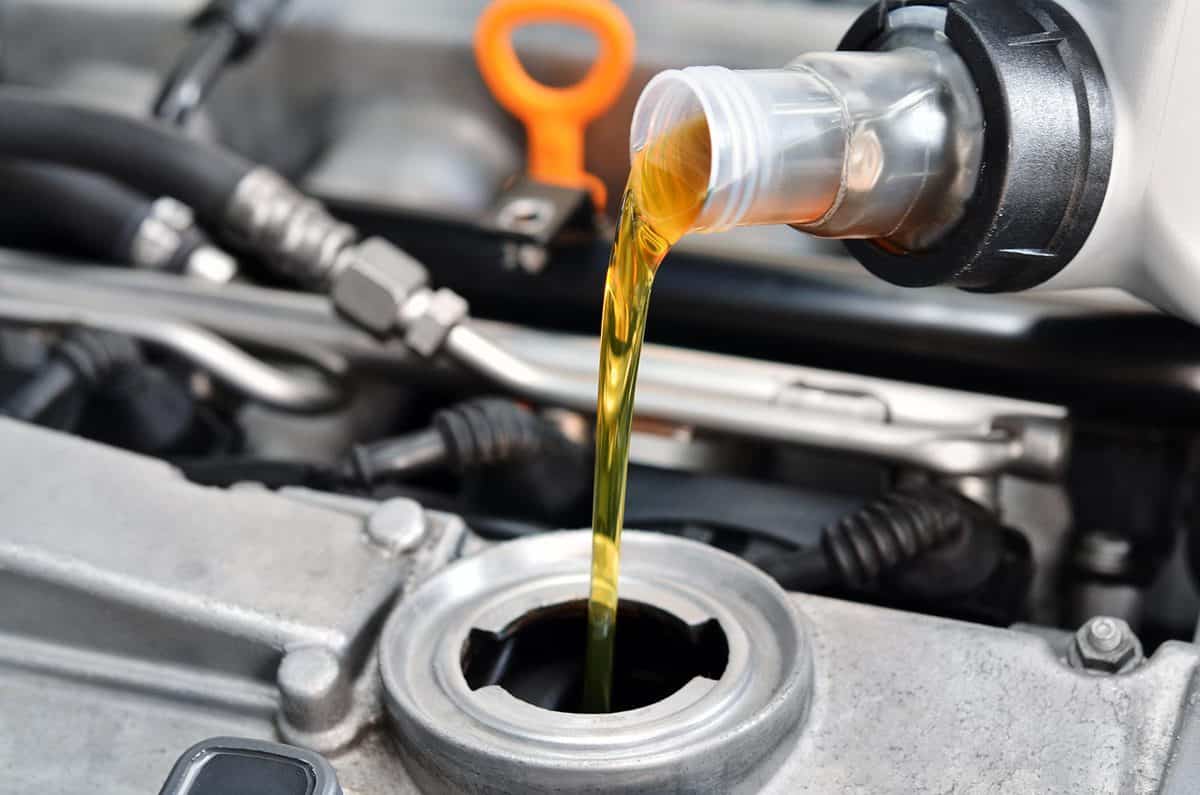One way to keep your Chevy in its prime condition is to use maintenance products best manufactured for it. If you are wondering which engine oil is best for your Chevrolet Cruze, you're in the right place. We've done our research, and here's what we found out.
General Motors, the manufacturer of Chevrolet Cruze, recommends the use of products that meet Dexos oil specifications. Here is a list of engine oil grades best suited for your car:
- SAE 0W-20
- SAE 5W-30
Engine oil is crucial for maintaining a car's engine. It functions to lubricate, clean, and protect the metal parts and engine gears. We understand that having a knowledge of the best maintenance products for your car lessens maintenance repairs. We have created this guide for you to keep your car engine running at its best.

Engine Oils That Are Best For Chevrolet Cruze
Engine oil grades are developed by the Society of Automatic Engineers (SAE) to describe the viscosity of the oil. The first number before the letter W (Winter) represents the weight that oil emulates in cold temperatures. While the number after W represents the oil weight under normal operating conditions.

Generally, for colder temperatures, a smaller number means better flow. For instance, a 0W-20 oil will have a better cold flow than 5W-30 oil.
What Are Dexos Oils Specifications and Why Should You Pay Attention to Them?
Dexos oil specifications meet the appropriate API SN, API SP classification, and approvals of GM. To help consumers easily recognize engine oils that meet their specifications, they have marked those products with the Dexos logo.
GM also recommends the use of full synthetic oils since they have better viscosity and stability compared to part-synthetic oils and conventional oils. Synthetic oils also allow better fuel and oil economy, fewer emissions, and increased engine protection because they are scientifically engineered for better engine performance.
SAE 0W-20
SAE 0W-20 engine oils begin with 0 viscosity upon engine startup and increase up to 20 once the engine warms up to normal temperature. This engine oil grade designates thinner and lower friction oil.
Valvoline Full Synthetic High Mileage Motor Oil 5
Valvoline Full Synthetic Oil High Mileage with MaxLife Technology Motor Oil is specially formulated to provide added protection against engine wear. It is scientifically engineered to rejuvenate aging engines, thus increasing the mileage of your car. It also comes with premium seal conditioners preventing oil leaks.
Pennzoil Platinum Full Synthetic Motor Oil
Pennzoil Platinum Full Synthetic Oils keep the engine pistons up to 65% cleaner thus providing better fuel economy. They are designed to protect engines from loss of power and provide excellent performance even in extreme temperatures.
SAE 5W-30
SAE 5W-30 engine oils begin with 0 viscosity upon engine startup and increase up to 30 once the engine warms up to normal temperature. Engine oils with this grade are easily available and are mostly recommended even by other car manufacturers.
Castrol Edge Extended Performance Full Synthetic Oil
Castrol's 1597b1 Edge Extended Performance Advanced Full Synthetic Oil is a number one choice for drivers as it provides an extended drain of 20,000 miles. It is also uniquely engineered with fluid titanium technology encompassing unsurpassed protection for engine parts.
Mobil 1 Extended Performance Motor Oil
Mobil 1 (120766) Extended Performance Motor Oil is a fully synthetic engine oil designed for vehicles of all ages. It provides excellent overall protections and engine stability under various operating conditions.
Frequently Asked Questions
Is Engine Oil the Same as Motor Oil?
Engine oil and motor oils are interchangeable terms. Both are basically the same products. An engine/motor oil is a substance made of base oil, viscosity improvers antiwear additives, dispersants, and detergents.
They function in lubricating parts and gears of an engine, cleaning combustion residues, cooling engines, and improving piston rings and cylinder sealings.
What is the Oil Capacity of Chevrolet Cruze?
The optimal amount of engine oil for a car to run smoothly is called the oil capacity. First-generation Chevrolet Cruze has an oil capacity ranging from 4.25 quarts to 4.76 quarts, while that of the second generation ranges from 4.2 quarts to 5.3 quarts.
How To Check the Engine Oil Level?

It is recommended to check your car's engine oil level regularly, every 400 miles, and before long trips to prevent your car from starving of engine oil.
Here is a list of instructions on checking engine oil:
- Park the vehicle on level ground and turn it off for at least two hours.
- Remove the dipstick and check the engine oil level.
- Pull out the dipstick, wipe it clean, then push it back again.
- Recheck the engine oil level while keeping the pin-down.
- Make sure that the oil level is below the cross-hatched area at the tip of the stick.
How to Change the Engine Oil In Your Car?

If you're someone who loves working on your car, changing your own oil would be a fun thing to do. It will also definitely save you some money.
Here is how to change the engine oil in your Chevrolet Cruze:
- Jack up your car to open it up. Make sure you have enough working space before you remove the engine cover or the undercarriage to access the oil pan and oil filter. You might also want to check for oil leaks. If you see any, contact a mechanic to inspect your car.
- Locate the drain plug and drain the oil. Place a receptacle container large enough to contain all the oil that will be draining from your car. This will keep your oil from leaking into the floor and making a mess all over. Unplug the drain plug then allow the oil to drain into the container.
- Remove the old oil filter. It is a relatively small cylindrical component screwed onto the engine. Use an oil filter wrench to loosen it until it falls towards the receptacle. Also, make sure that you don't leave behind the old oil-filter gasket which is a thin rubber O-ring. Failure to remove this will prevent the new filter to seal properly. This will lead to oil leaks which can be catastrophic for your car.
- Replace the drain plug. When replacing the drain plug, avoid overtightening it. Just keep it snug to prevent damaging the oil pan and drain plug. After which, properly seal the new oil filter by coating a small amount of your new engine oil around the rubber gasket. After this, you can now reinstall the undertray and lower the car back to the ground.
- Fill the engine with the manufacturer's indicated volume of oil. Open the hood of your car, then, remove the oil cap. Then use a funnel to fill the engine with the manufacturer's indicated oil volume. Avoid overfilling as this can cause possible damage to your engine. If, however you slipped and poured too much, you can just drain it as if you're removing old oil or have a professional remove the excess oil.
- Check the oil level. Once you have poured in the right amount of oil, allow it to settle for a few minutes. The final step is for you to check the level of oil using your dipstick. Once all this is done, you can now restart the engine. Let the vehicle stay in place and warm up while you check for leaks under the vehicle. Lastly, don't forget to reset the car's engine oil system after every successful oil change.
How To Properly Dispose of Used Engine Oils?
Used engine oils should not be disposed of or mixed with normal trash. They are harmful to the environment, even to us humans. When storing them, always use sealable and leakproof containers. The best way to get rid of them is by taking them to auto parts stores or service stations that take used motor oils and oil filters for recycling.
What Happens If I Put the Wrong Engine Oil In My Engine?
Using thinner, thicker, less viscous, or more viscous oil than the one recommended for your car will not cause immediate damage to your car. However, in the long run, this may lead to engine wear over time, increased oil consumption, and decreased fuel efficiency.
The worst that can happen to your car is extensive damage to your engine. But, in case you put the wrong engine oil, you can just drain it yourself or get an oil change from an auto shop.
Final Thoughts

Chevrolet Cruze runs best on full synthetic Dexos oils with the following viscosity grades: SAE 0W-20 and SAE 5W-30. These oil recommendations are approved by GM to ensure high fuel efficiency, best engine performance, and long engine life. In this article, we have included specific engine oil brands best suited for your car.
Click here to know what happens if your engine is running too low on oil.
Click here if you're curious about what's going to happen if you added water into your car oil.




